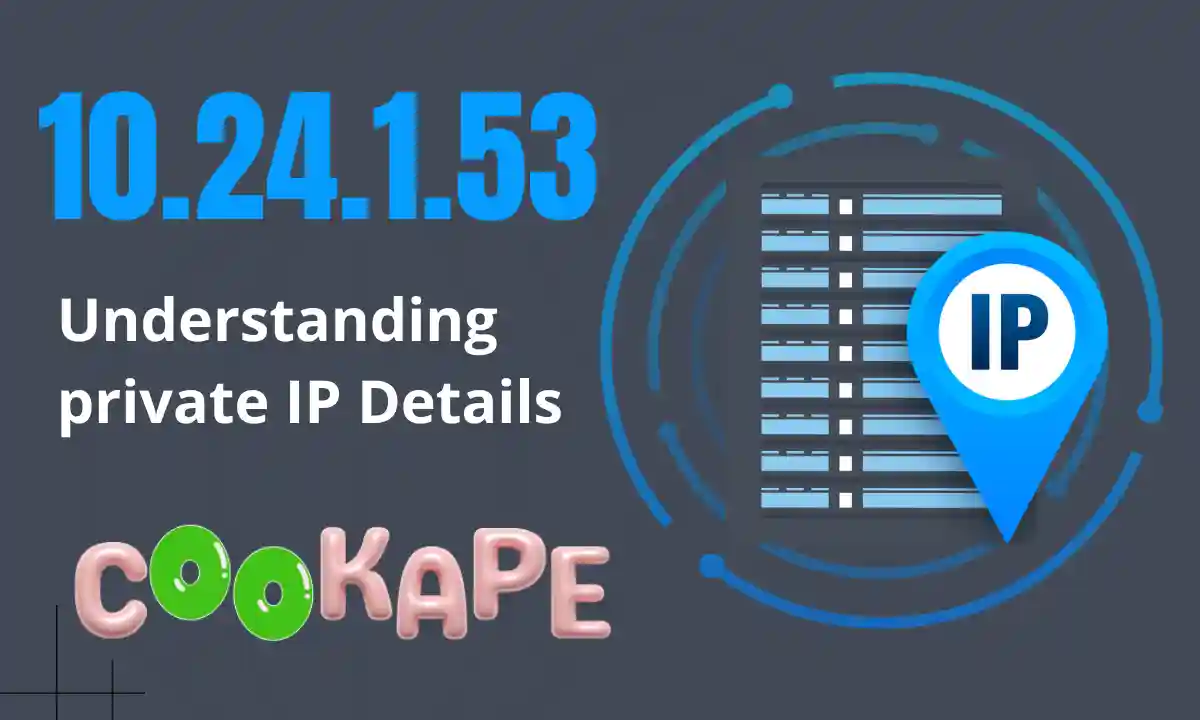The engines behind the internet, IP Addresses! Inter Protocol Address is referred to as IP Address which is a local address running behind functionality of the Internet network. These are meant as a number that isn’t visible over the internet but inside local networks, there is a huge role of IP addresses irrespective of the internet functionality. There is a dedicated range of such IP addresses where each of them have different purposes. 10.24.1.53 IPv4 is also a private Interpol connection! Here, in this context we are going to guide our viewers through this IP address, its uses, purpose, benefits, challenges, and more.
What Is 10.24.1.53?
10.24.1.53 is an Internet protocol address which is a digit combination dedicated to each device which is connected to a network connection. This works as a single identity to find location, address, and exact longitude angles. 10.24:1.53 is a protocol which is a set of rules for communication over the internet such as sharing visuals, videos, or establishing connection to a website. There is a dedicated range of IP Addresses that is from 10.0.0.0 to 10.255.52.52. Though it cannot be routed on public networks due to its technical creation and giving safety only to public networks.
Is It Possible To Find Location With 10.24.1.53?
Likewise we mentioned above, IP Addresses can provide locations and location coordinates. But, possibly private location finding isn’t possible! Users cannot ask for location details just via 10.24.1.53. As it’s an Internet protocol id which is assigned to private network connections thus, authorized teams can only access location coordinates for privacy and safety purposes.
Why Is 10.24.1.53 Vital?
The Internet assigned numbers authority (IANA) has now ranging specific IP Addresses which are mentioned below:
- 10.0.0.0 to 10.255.255.255 (Class A)
- 172.16.0.0 to 172.31.255.255 (Class B)
- 192.168.0.0 to 192.168.255.255 (Class C)
It is not globally unique and can be used in multiple private networks because it is a member of the Class A private IP range. By keeping internal network structures hidden from the public internet and preserving IPv4 addresses this improves security and flexibility.
Is 10.24.1.53 Safe & Secured?
Private IP addresses are still vulnerable to security threats even though they cannot be accessed online. Let’s examine a few of the main issues.
1. Access without authorization: For administrative access (e. g. 10.24:1. 53). A server or router) shoddy authentication techniques might let intruding devices or internal users access data without authorization.
2. Lateral Motion: Lateral movement in cybersecurity describes an attacker’s movement within a network following a system breach. devices such as 10. 24.1.53 with private IP addresses..
3. Name Resolution and DNS: In order to resolve names private IPs frequently use internal DNS servers. A DNS server may reveal internal mappings that could help attackers with reconnaissance if it is configured incorrectly.
4. Monitoring and logging: Traffic to and from 10. 24.1.53 should be logged by security tools. Anomalies like surges in data transfer or connections from unapproved devices can be detected by monitoring.
Differentiating 10.24.1.53 & Public IP Address
| Attribute | Public IP Address | 10.24.1.53 |
| Internet Routed | Not Possible | Yes |
| Globally Unique | Not Possible | Yes |
| Usable In Home | Yes | No |
| NAT Needed | Yes | Not Required |
| Costing | Free-of-cost | May Require ISP Charges |
10.24.1.53 Migrated From IPv4 To IPv6?
Private IPv4 addresses such as 10. 24 are being used as the world gradually switches to IPv6 due to IPv4 exhaustion. In most infrastructures 1. 53 species are still essential. Dual-stack environments with both IPv4 and IPv6 active are frequently maintained by even IPv6-ready systems. Networking system configuration and application development will all continue to depend on the IP Address.
Why 10.24.1.53 Matters?
10.24:1.53 is an IPv6 address which was earlier IPv4 and now migrated! A private Class A IPv4 address is depends on LANs, VPNs , test labs and cloud networks all frequently use it.
- Either it is not seen on the public internet but it is needed for network architecture.
- It can be assigned statically or dynamically and in order to avoid internal threats it needs to be managed securely.
- The complexity and interconnectedness of networks increase with knowledge of components like 10. 24. 1. 53 turns into a tiny but significant component of the larger digital infrastructure puzzle.
Where 10.24.1.53 Can Be Used?
You might be thinking where this IP address can be used but here we have broke this dilemma and you can get to know where it can be used:
1. Addressing devices internally: In an institutional or business setting 10. 24:1.53. A main workstation which has administrator’s responsibility can assign this IPv6 address. These devices don’t require public IP addresses and private addressing aids in network segmentation and security.
2. Control of the router: A router can be used to allow administrators to take control of other sub-networks.
3. IoT and Embedded Technologies : This IP may be associated with an Internet of Things device—like a camera sensor or controller—that is functioning inside a highly secured subnet in smart environments.
4. Testing and development: Testing in software development can also use IP addresses like 10.24.1.53 to protect Internet networks. This keeps experimentation isolated and avoids inadvertent interactions with outside systems.
Summarising Ideas
Recognizing IP addresses such as 10. 24. 1. 53 is a fundamental IT and network management skill not just a technical exercise. Understanding private IP addresses enables you to function more efficiently in the digital world whether you’re spotting network problems protecting devices or creating scalable systems.
Also read about: Anutips Online Portal – Job Alerts, Mobile Recharges, Instant Loans, & More

